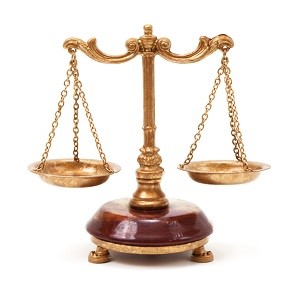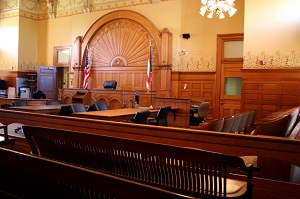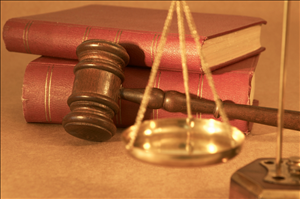Posted Thursday, July 17, 2014 by
Chris Thayer
As you discuss your case with your Renton personal injury attorney, he or she will ask you a variety of questions. One area that he or she might concentrate is any potential weaknesses to your case. Here are a few factors that might impact the value of your case in a negative manner.
variety of questions. One area that he or she might concentrate is any potential weaknesses to your case. Here are a few factors that might impact the value of your case in a negative manner.
Consumption of AlcoholIf any consumption of alcohol is relevant to the question of liability, your Renton personal injury attorney may warn that this information can be significantly damaging to your case. For example, if you were injured in a motor vehicle accident after you consumed alcohol, this factor may completely eliminate your chance to receive a favorable settlement or verdict. In some cases, a Renton personal injury attorney can help prevent this issue from becoming fatal. He or she may help minimize this issue by:
• Calling witnesses to testify that your alcohol consumption was only minimal;
• Presenting blood or breath tests that show that your blood alcohol content was below the legal limit; and
• Filing a motion with the court to prevent mention of any alcohol consumption if it has no relevance to the accident.
Other LawsuitsIf you have filed other claims or lawsuits, your Renton personal injury lawyer may warn that this information may be used against you to paint you as a serial plaintiff. The defense attorney usually learns about this information through interrogatories. Your lawyer may be able to minimize the damage of this issue by showing that the claims are referencing different injuries and areas of your body. Additionally, your attorney may be able to file a motion to prevent mention of prior claims if mentioning them would be more prejudicial than probative.
Criminal Record Sometimes, your own criminal record can be revealed during a trial. If you have been convicted of a crime that involves dishonesty, the jury may have a hard time believing you. Sometimes this information can be avoided if it has no bearing on your honesty or if it occurred a long time ago.
If you would like to learn more about factors that can affect the value of your claim, contact Renton personal injury lawyer Chris Thayer at (206) 340-2008.
Permalink to this entry
Posted Thursday, July 10, 2014 by
Chris Thayer
When your case progresses to the discovery stage, your Woodinville personal injury attorney will probably explain what a deposition is and how they are conducted. This powerful discovery technique allows your attorney to ask pertinent questions, and record answers now in case they change in the future. He or she will begin with preliminary questions.
will probably explain what a deposition is and how they are conducted. This powerful discovery technique allows your attorney to ask pertinent questions, and record answers now in case they change in the future. He or she will begin with preliminary questions.
Preliminary Questions
Your Woodinville personal injury attorney may ask the following preliminary questions to get the process started:
• Have you ever completed a deposition before?
• Do you understand you are answering under oath?
• Do you realize that your answers have the same effect as if we were in a courtroom with a judge?• Are you ready to answer my questions today?
• Have you taken any medications or suffering from any condition that could prevent you from comprehending the questions before you today?
• If you do not understand a question I ask, will you tell me?
Your Woodinville personal injury attorney can explain that these questions help ease the person having his or her deposition taken into the process.
Deposition Outline
Your Woodinville personal injury lawyer may prepare an outline for the deposition. This outline may include the following subjects:
• Preliminary questions
• Preparation of the witness for the deposition
• Previous statements or writings about the case
• Previous statements or writings by other individuals
• The existence of other witnesses
• Conversations that the deponent engaged in regarding the subject of the lawsuit or the deposition
• The relationship between the witness and the parties
• Admissions by a party that help support the case
Your personal injury lawyer will also ask questions that are specific to your particular case.
If you would like to learn more about the process of taking or defending a deposition, a Woodinville personal injury lawyer may be able to help. Call Chris Thayer at (206) 340-2008 to set up a confidential consultation with an experienced personal injury lawyer and to get started with your case.
If you would like to learn more about the process of taking or defending a deposition, a Woodinville personal injury lawyer may be able to help. Call Chris Thayer at (206) 340-2008 to set up a confidential consultation with an experienced personal injury lawyer and to get started with your case.
Permalink to this entry
Posted Wednesday, July 9, 2014 by
Chris Thayer
There are numerous elements in your auto accident case that will influence the jurors. As you are preparing for your court date, familiarize yourself with the following 4 factors that may impact their decision. Knowing about what factors will lead the jurors to award a favorable verdict will help your case.
Permalink to this entry
Posted Monday, July 7, 2014 by
Chris Thayer
Having a prepared and experienced Seattle personal injury accident attorney can certainly increase the odds of you prevailing in your case. However, the success or failure of litigation is not exclusively dependent on your attorney. There are eight other things that you can do to enhance your case. Read on to learn about these eight actions that can help increase the probability of your success.
Permalink to this entry
Posted Thursday, June 26, 2014 by
Chris Thayer
According to a Seattle personal injury law firm, there are things that a plaintiff can either  do – or not do – that may either protect or reduce the value of a personal injury claim. Following are some things that a plaintiff can do to ensure that the value of the case is not compromised. 1. Avoid contact with witnesses for either the defendant or the plaintiff;
do – or not do – that may either protect or reduce the value of a personal injury claim. Following are some things that a plaintiff can do to ensure that the value of the case is not compromised. 1. Avoid contact with witnesses for either the defendant or the plaintiff;
Keep track of documentation pertaining to the injury such as medical bills, prescriptions, discharge papers or hospital records;
Keep all appointments with doctors, physical therapists and any other member of the treatment team;
Keep a Seattle personal injury lawyer informed of any status changes including address or employment;
Keep all appointments with the Seattle personal injury law firm and follow the attorney’s advice regarding answering interrogation questions and deposition testimony; and
Avoid discussing the facts of the case with anyone who may be a witness or in public areas where a conversation could be overheard.
Here are some factors that may compromise a personal injury case:
If the plaintiff is convicted of a criminal offense, it could compromise the plaintiff’s credibility;
Marital problems or problems at work may damage a plaintiff’s credibility and harm the case; and
The plaintiff fails to mitigate damage. In other words, if the plaintiff makes an injury worse by failing to follow medical advice that would be considered failure to mitigate damages.
Following is an account of a plaintiff who harmed her own personal injury case. A lawyer was getting ready for an upcoming court date for a slip-and-fall injury case when he got a phone call. The caller was a woman who had been in a restaurant when she overheard the plaintiff speaking to a friend. The pair were discussing the case including their expected testimony and depositions.
In an earlier deposition, the plaintiff had testified that she had not consumed any alcohol before her fall, but mentioned that she had been drinking before the fall to her friend. During the trial, the woman who had overheard the conversation was called to the stand as a rebuttal witness. The woman disclosed the statements made at the restaurant. The jury quickly returned a verdict that was not favorable to the plaintiff. It is clear that the plaintiff’s decision to discuss the case in a public area was devastating to her case.
A Seattle personal injury law firm may provide advice and assistance to someone who has been injured by someone else’s negligence or recklessness. Additionally, a lawyer may help a plaintiff avoid damaging his or her case. Chris Thayer is a Seattle personal injury lawyer and can be reached at (206) 340-2008.
Permalink to this entry
 variety of questions. One area that he or she might concentrate is any potential weaknesses to your case. Here are a few factors that might impact the value of your case in a negative manner.
variety of questions. One area that he or she might concentrate is any potential weaknesses to your case. Here are a few factors that might impact the value of your case in a negative manner. 
 will probably explain what a deposition is and how they are conducted. This powerful discovery technique allows your attorney to ask pertinent questions, and record answers now in case they change in the future. He or she will begin with preliminary questions.
will probably explain what a deposition is and how they are conducted. This powerful discovery technique allows your attorney to ask pertinent questions, and record answers now in case they change in the future. He or she will begin with preliminary questions.  do – or not do – that may either protect or reduce the value of a personal injury claim. Following are some things that a plaintiff can do to ensure that the value of the case is not compromised. 1. Avoid contact with witnesses for either the defendant or the plaintiff;
do – or not do – that may either protect or reduce the value of a personal injury claim. Following are some things that a plaintiff can do to ensure that the value of the case is not compromised. 1. Avoid contact with witnesses for either the defendant or the plaintiff;